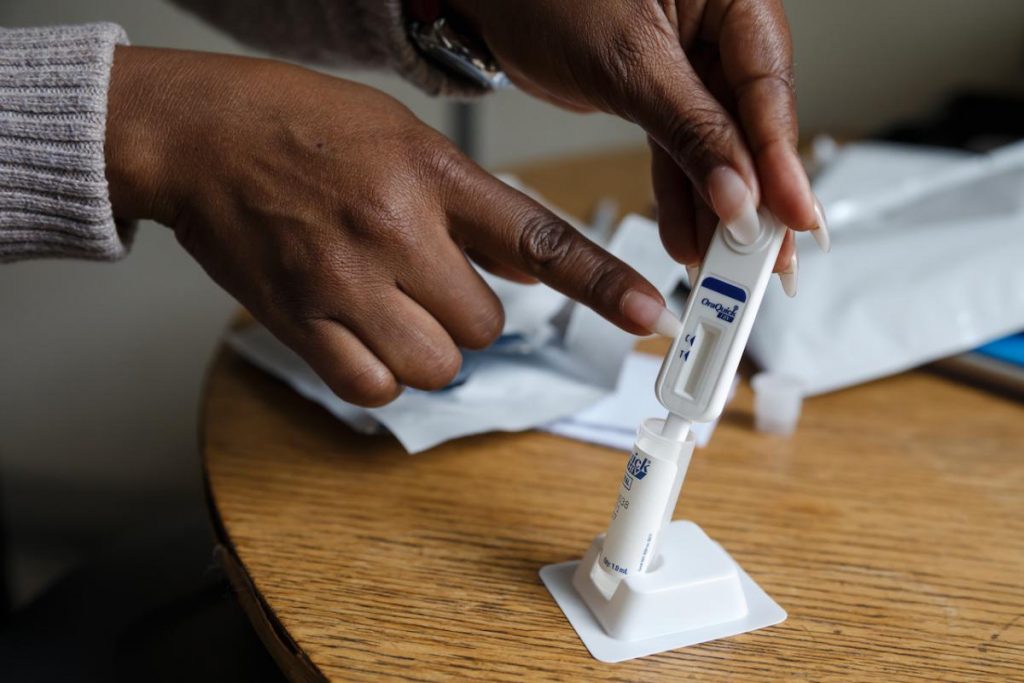Patronage of HIV self-testing soars barely a month after the kit was launched

The usage of HIV self-testing kits has witnessed a remarkable increase just within a month of their launch, as revealed by Dr. Stephen Ayisi Addo, the Programme Manager of the National Aids Control Programme (NACP).
In an interview with the Ghana News Agency in Accra, Dr. Ayisi Addo disclosed that the number of community requests for the kits stood at over 33,000 at the time of their introduction, and this figure swiftly doubled to exceed 70,000 in a short span.
He further noted that the program had already received over 11,000 online requests, with the distribution process currently ongoing throughout the country.
The oral mucosa test kit is designed for oral HIV testing, representing one of the latest innovations in a range of strategies aimed at encouraging Ghana’s population to undergo HIV testing to determine their status.
Containing a spatula-like swab, a test solution, a holder for the solution, and an instructional manual, the kit is employed by initially checking its expiration date and ensuring its integrity before use. Upon opening the kit, the letters “C” and “T” can be seen, where “C” represents “control” and “T” stands for “test”.
The procedure involves gently rubbing the swab over the upper and lower outer gums, followed by dipping it into the solution. After resting in the solution for 15 to 20 minutes, the test is ready.
Results showing a line only at the “C” calibration indicate an HIV-negative status, while two crossed lines at both “C” and “T” calibrations denote a reactive HIV result, necessitating a confirmation test at a hospital.
Individuals who receive negative results are encouraged to maintain their status, whereas those with reactive results must undergo three additional tests at a healthcare facility for final confirmation and subsequent treatment if confirmed positive.
Dr. Ayisi Addo expressed concern over the persistence of new infections despite efforts in prevention, condom promotion, treatment, and care services. He highlighted that despite these efforts, in 2022, an estimated 354,000 people were living with HIV by the end of the year, with over 16,000 new infections recorded.
The initiative targets individuals who might not seek testing at healthcare facilities, including over 100,000 individuals unaware of their HIV status.
Dr. Ayisi Addo stated that this new approach is a game-changer, expanding access to treatment beyond healthcare facilities and encouraging people to ascertain their status privately and confidentially.
He emphasized that positive responses from other countries prompted the adoption of this policy, citing a pilot in 2020 with an 80% acceptance rate. He noted that the current distribution has also been well-received, indicating a high number of first-time testers who might have otherwise remained untested.
Dr. Ayisi Addo expressed optimism that this new strategy will contribute to achieving the World Health Organization’s (WHO) “95-95-95” targets, where everyone should be aware of their HIV status.
He further explained that receiving treatment after a positive test can suppress the virus within six months, preventing transmission. Adherence to treatment is crucial for achieving this suppression.
Dr. Ayisi Addo mentioned that informational leaflets in English and Twi, along with documentaries on social media, aid individuals in using the test kits. He encouraged the public to take advantage of this strategy and cooperate fully.
He appealed to Ghanaians to embrace this revolutionary approach, highlighting the significant progress from waiting weeks for laboratory results to now being able to self-test in the comfort and privacy of their own space.
He noted that HIV test kits are available at select pharmacies and online, with requests possible through www.hivselftestghana.
Source – citinewsroom.com





